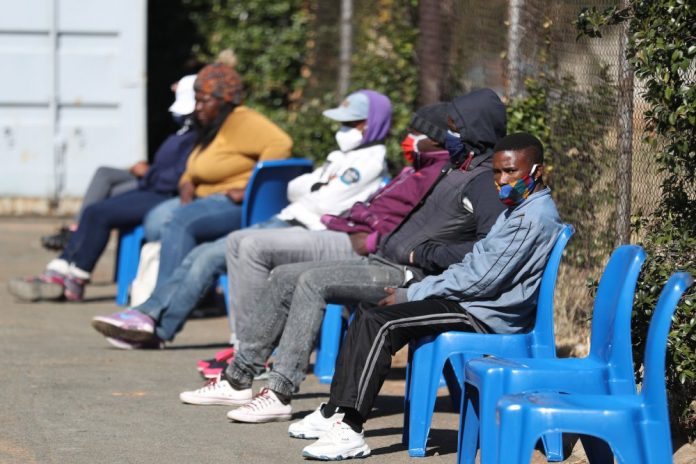
The Coronavirus public health emergency became considered a pandemic on 11 March 2020. The pandemic has highlighted and worsened global health and social inequalities. Poor working-class people have been most affected in different parts of the world.
By the beginning of February, there had been 106m recorded cases and at least 2.32m. The United States, India, Brazil, and Britain are the most affected countries. A second wave which started by the end of 2020 has been particularly debilitating with at least four variants which are more transmissible.
Most political commentators expected developing countries, particularly those in Africa to be the most affected. This was because the public healthcare system is in shambles on the continent and poverty (with millions of people living closely together in slums) is so widespread. But for reasons which are not yet clear, this has luckily not been the case.
But all the same there have been more than 3.5m reported cases and almost 90,000 deaths. About half of these have been during the last few months of the second wave, with several countries witnessing sharp rises in the rate of infection. In South Africa, 93% of the new infections are from a more virulent new variant.
Vaccination is very important to curtail the spread of infection. Realising this, rich countries committed over $113bn and technical support to vaccine development last year. The result was the historic development of vaccines within a year, unlike the normal situation when it takes several years to develop a vaccine.
There are now about 7 vaccines available for use. But despite the massive public funds dedicated to make this happen, they are produced and owned by private bio-pharmaceutical companies who are selling them at huge profits to governments. This has resulted in severe inequalities in access to the vaccines. Even before the vaccines were available, a few rich countries had already placed orders for more than 80% of what would be produced, with cash backing.
Some advanced capitalist countries like Canada have enough doses to vaccinate their population five times over. And by the second week of January, fifty rich countries had been able to administer 39m doses of COVID-19 vaccines. But Guinea in West Africa was the only poor country that had been able to acquire and administer vaccines and this was just 25 doses!
If decisive action is not taken now, 70 developing countries might not be able to vaccinate more than one out of every ten persons in their population by the end of the year. And several of them will not be covered by vaccinations until 2023, because they cannot afford the prices, they are being charged which is up to thrice the amount paid by the European Union for the same vaccines, and then there are also the costs of transportation and storage. Some African countries have resorted to loan facilities from the World Bank and IMF to be able to purchase vaccines. This will worsen their economic crises, with grave impact on poor working-class people, as the continent is already deep in recession.
South Africa is the richest country in Africa and the most affected by the pandemic with 1.48m cases and 47,000 deaths by the second week of February. It acquired 1m doses of the AstraZeneca vaccine which it was to start administering on 7th February, starting with health workers. But it cancelled this at the last minute because the vaccine was only 40% effective for the new variant that is now dominant in spreading the disease in the country.
This shows the foolishness of the “vaccine apartheid” that rich countries in collaboration with pharmaceutical corporations are establishing. Without vaccination taking place across the world simultaneously there will be more mutations of the virus with new variants which could infect even those that have been vaccinated. The global impact of this, according to Dr Anthony Fauci, the American infectious diseases expert, is that it would take at least seven and a half years for the world to get back to “normal”.
Working-class people across the world must demand universal access. COVID-19 vaccines must be available and provided free of charge to everybody, everywhere. The wealth of a few people must not come before the health of all of us. The pharmaceutical companies selling the vaccines developed with huge amounts of tax-payers money stand to make billions of dollars in profit. This must be resisted.
They have patented knowledge and technologies used to develop the vaccines as their intellectual property. We must fight to take this from them. We must recall the response of Jonas Salk who developed the polio vaccine when he was asked who owned the patent; “the people, I would say. There is no patent. Could you patent the sun?”
Trade unions, civil society organisations and left groups across the world are thus demanding the waiver of all intellectual property rights on COVID-19 vaccines, medical devices, and technologies. And we must lend our voices to this. But there will still be countries, particularly in Africa, that will not be able to afford generic vaccines. Therefore, our demands must include provision of grants to them and not loans by the international financial institutions.
Working-class people across the world must stand in solidarity in our struggle to end the pandemic and the exploitative capitalist system which has allowed it to fester. We must stand up now for Health Over Wealth and People Before Profit!
by Baba AYE
Note: This article was translated into Greek by Daskalakis Dimitris and first published in the SEK (Greek Socialist Workers Party) newspaper – online here.








